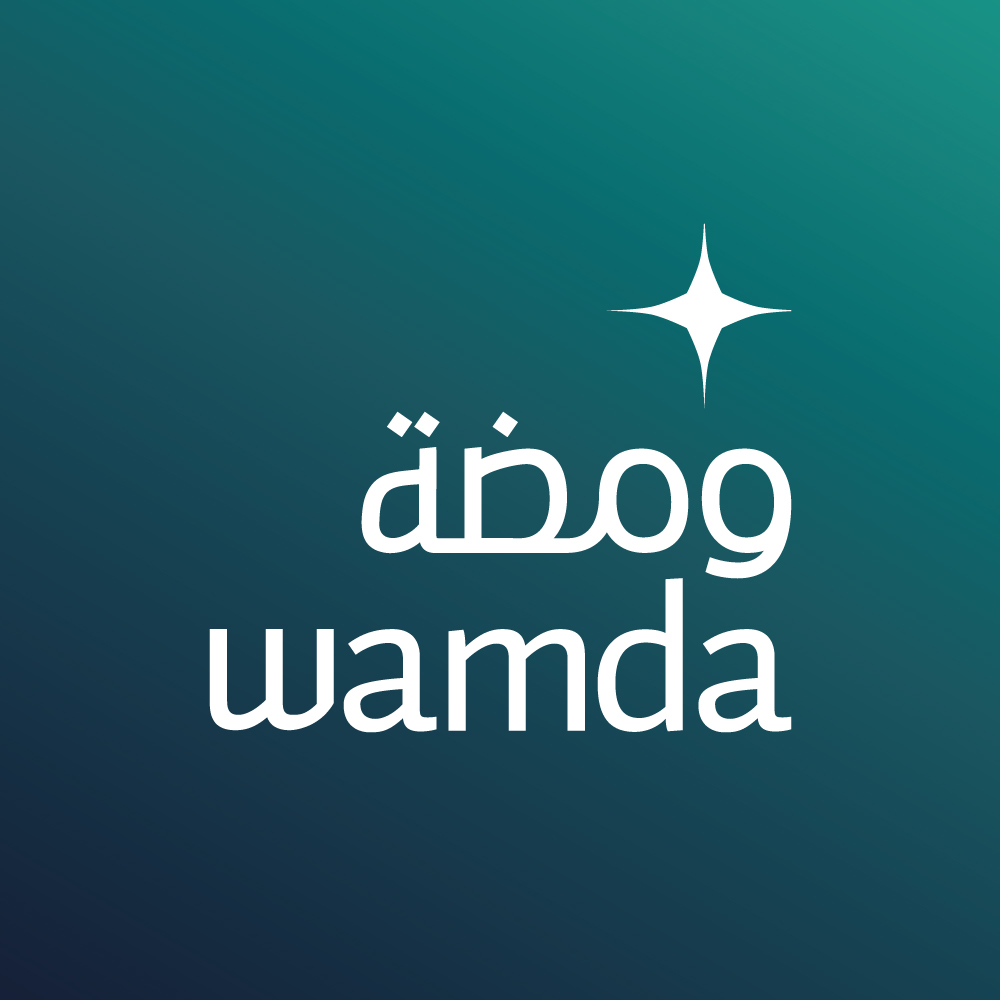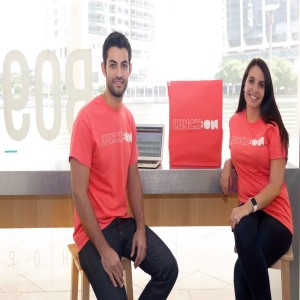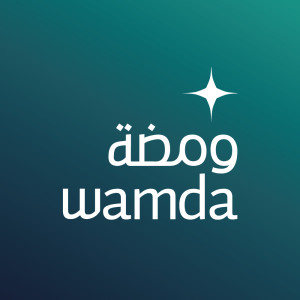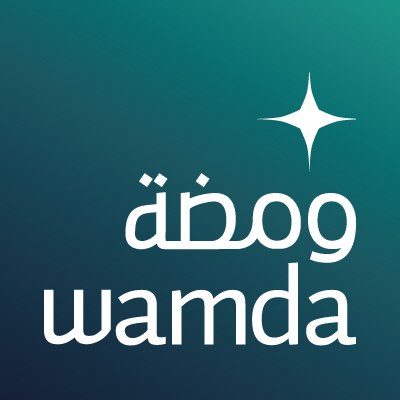
5.8K
Downloads
49
Episodes
Wamda accelerates entrepreneurship ecosystems throughout MENA by joining Wamda Capital, the most active, multi-stage, sector agnostic VC fund investing in high growth technology or tech-enabled startups across the MENA, and the leading knowledge platform offering integrated programs including thought leadership and research, community development, Wamda’s fellowship program Wamda X, as well as corporate and government advisory services to the various stakeholders of the MENA startup ecosystem.
Episodes

Sunday Jul 21, 2019
Episode 20 - How to identify the ideal startup founder
Sunday Jul 21, 2019
Sunday Jul 21, 2019
Wamda X was launched earlier this year to find and identify the region's best startup founders. The fellowship programme attracted some 600 applicants, but just two startups managed to reach the four-month finishing line. In this podcast, Wamda X chief Fares Ghandour discusses the characteristics of a successful founder and Caravan founder Syed Karim discusses his experience as a fellow.

Sunday Jun 23, 2019
Episode 19 - The Food Tech Series with El Grocer
Sunday Jun 23, 2019
Sunday Jun 23, 2019
The Middle East is no stranger to online food delivery. Apps like Zomato, Deliveroo and Talabat are found on almost every smartphone in the region, but increasingly consumers are becoming more comfortable with purchasing their groceries online.
Nader Amiri founded El Grocer to bring the same ease of ordering his dinner to his weekly shop. In this podcast we discuss his startup story and follow the online ordering process instore.

Sunday Jun 09, 2019
Episode 18 - The Food Tech Series with Pure Harvest Smart Farms
Sunday Jun 09, 2019
Sunday Jun 09, 2019
We speak with Sky Kurtz, co-founder and CEO of Pure Harvest, smart farm in the UAE where they grow tomatoes hydroponically and how technology is changing agriculture.

Wednesday May 15, 2019
Episode 17 - The Food Tech Series with LUNCH:ON
Wednesday May 15, 2019
Wednesday May 15, 2019
LUNCH:ON was founded by Dana Baki and Mohammad Al Zaben in 2015, delivering lunch to office workers in Dubai. Since then, it has expanded its presence to Dubai and will no be launching in Saudi Arabia. So how does a company whose core business comes from lunchtime orders survive during Ramadan?

Tuesday Feb 19, 2019
Tuesday Feb 19, 2019
The United Arab Emirates (UAE) has managed to diversify its economy away from oil by becoming the leading business hub for international corporations in the Middle East and North Africa (MENA) region. Its tax-free environment, developed infrastructure and easy access to two-thirds of the world's population, have made it an attractive destination for small to medium-sized enterprises (SMEs) looking to scale. But it remains an expensive country for startups and relies heavily on a foreign workforce.

Thursday Jan 31, 2019
Episode 15 - The growth of e-groceries with InstaSalla
Thursday Jan 31, 2019
Thursday Jan 31, 2019
InstaSalla is a Kuwait-based e-grocery company launched in 2016 by Smart Mart, an e-commerce platform. Today, InstaSalla is the leading e-grocery platform in the country, fulfilling some 500 orders a day. It has now set its sights on expansion, aiming to be in 10 countries by the end of 2020.
Wamda's Sarah Abu Risheh spoke with Fayed Yousry, chief executive officer at InstaSalla about the company’s journey and experience selling groceries online.

Tuesday Sep 25, 2018
Episode 14 - Increasing competitiveness in the Arab World
Tuesday Sep 25, 2018
Tuesday Sep 25, 2018
The Middle East and North Africa (Mena) region has the highest unemployment and youth
unemployment rate in the world at 10 per cent and 27 per cent respectively, as well as the lowest
female participation rate at 21 per cent. These rather sobering facts were identified in the Arab
Competitiveness Report 2018, published by the World Economic Forum.
Speaking to the region’s top 100 entrepreneurs, the study highlights the pitfalls of doing business in the
region and the challenges and opportunities facing the private sector.
Wamda’s Walid Faza spoke to Ali AbuKumail, senior private sector specialist at the World Bank and one
of the lead researchers of the report, about the ease of doing business in the region, particularly in
Jordan, and how governments can foster a better environment for entrepreneurship.

Thursday Feb 22, 2018
Episode 13: Michael Arrington and Natalia Karayaneva hosted at Wamda
Thursday Feb 22, 2018
Thursday Feb 22, 2018
Since 2005, TechCrunch, founded by Michael Arrington, has been a primary source for global tech and innovation news, trends, and updates.
By end of 2017, Arrington kicked-off a $100 million hedge fund, Arrington XRP Capital, entirely based on cryptocurrency, making a turning point in his career path, and making a steady statement in the world of startup funding.
Wamda Capital had the opportunity to meet with him in its Dubai offices, along with Natalia Karayaneva, the founder of Propy, a crypto-based real estate title registry startup, funded by Arrington XRP Capital.
Together, they discussed how Wamda’s been inspired by the TechCrunch model, and how Arrington decided to make a shift and embrace ICOs and cryptocurrency-related investments, the business he has in mind in the Middle East, and what Propy might bring to the table.

Sunday Aug 20, 2017
Sunday Aug 20, 2017
Whether we like it or not, we are constantly being affected by the ‘fear of missing out’ or ‘FoMO’, a term coined by investor Patrick McGinnis in 2004.
Patrick McGinnis. (Image via Patrick McGinnis' Twitter)
Our generation is increasingly desiring to be connected to what others are doing in order to avoid the loss of potential fun experiences. Social media is not making this easier explained McGinnis in Amman on August 1, during an event organized by Wamda and hosted by the Abdul Hameed Shoman Foundation Grant Program.
This need of maximized level of experience is also felt in the workplace: As a potential entrepreneur you’d want to quit your desk job and follow your passion, but at the same time you’d want to keep your status and sustainable pay cheque. To McGinnis the way out of this dilemma is pretty simple: keep both.
But how do we make sure we don’t lose focus and fail in both worlds?
We answer this question and more in an interview we had with McGinnis to learn more about his theory and what brings him to the MENA region. Tune in to the podcast below to listen to the full interview.

Monday Aug 14, 2017
Episode 11 - When less is more: The 10% entrepreneur by Patrick McGinnis
Monday Aug 14, 2017
Monday Aug 14, 2017
We’ve all met those entrepreneurs who brag about dropping everything just to follow their dream and start their own business. You need to be fully committed they’d say.
“But what happens when a year or two down the line you fail?” asks investor Patrick McGinnis.
Patrick McGinnis.
Unlike the mentors who preach the all or nothing at all mentality, McGinnis thinks that leaving your office job to build a startup is an uncalculated risk and too much of a burden to handle, specifically because failure in the startup world is not the exception.
For most tech companies which intellectual property or talent is not compelling enough to catch the eye of the Googles, the Facebooks, or the Yahoos of the world, the cold hard reality is death. Some estimates even evaluate the failure at 90 percent of startups.
McGinnis is the founder of Dirigo Advisors investment firm, and is an investor in more than 20 companies including Bluesmart, Nxtp.labs, and Ipsy. His first job forced him to work out of a ‘cubicle’ on Wall Street, an unlikely place for a future startup investor. Eventually, the mundaneness of his job pushed him to explore other horizons across the innovative world.
However, he did not quit his day job simply because it was too risky to lose a sustainable paycheck. Instead, he dedicated only 10 percent of his time, effort and money to his passion.
In 2016 McGinnis published ‘The 10% Entrepreneur’ to explain how building your startup in parallel to your daily job might actually bear better results than full on commitment.
Tune in to the podcast below to hear him speaking in Amman on August 1, during an event organized by Wamda, and hosted by the Abdul Hameed Shoman Foundation Grant Program.
